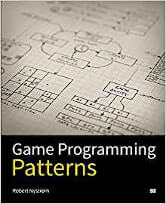Last Updated on February 21, 2024
10. Tips and Tricks of the C++ Professionals
 This book is for C++ programmers who want to reduce their development time, ease their portability problems, and reduce the number of bugs and memory leaks. Its about standard practices, regularity, simplicity, and correctness.
This book is for C++ programmers who want to reduce their development time, ease their portability problems, and reduce the number of bugs and memory leaks. Its about standard practices, regularity, simplicity, and correctness.
This book is not a tutorial of the C++ language. Rather, it addresses approaches to successfully using existing C++ compilers to develop real world programs in a professional manner — and, hopefully, as quickly and as painlessly as possible.
11. Financial Numerical Recipes (in C++) by Bernt Arne Ødegaard
 This book is a a discussion of the calculation of specific formulas in finance. The field of finance has seen a rapid development in recent years, with increasing mathematical sophistication.
This book is a a discussion of the calculation of specific formulas in finance. The field of finance has seen a rapid development in recent years, with increasing mathematical sophistication.
This book is intended to be of use for people who want to both understand and use complicated formulas in the fields of derivatives and fixed income, which explains why most of the algorithms presented later are derivatives prices.
12. Game Programming Patterns by Robert Nystrom
 Game Programming Patterns is a collection of patterns I found in games that make code cleaner, easier to understand, and faster.
Game Programming Patterns is a collection of patterns I found in games that make code cleaner, easier to understand, and faster.
The author asserts this book is applicable to non-game software too. He could just as well have called this book More Design Patterns, but he thinks games make for more engaging examples.
Game Programming Patterns is divided into three broad sections. The first introduces and frames the book.
The second section, Design Patterns Revisited, goes through a handful of patterns from the Gang of Four book.
The last section is the real meat of the book. It presents thirteen design patterns which are grouped into four categories: Sequencing Patterns, Behavioral Patterns, Decoupling Patterns, and Optimization Patterns.
Next page: Page 5 – How to make an Operating System and more books
Pages in this article:
Page 1 – The Boost C++ Libraries and more books
Page 2 – An Introduction to GCC and more books
Page 3 – C++ GUI Programming with Qt 3 and more books
Page 4 – Tips and Tricks of the C++ Professionals and more books
Page 5 – How to make an Operating System and more books
All books in this series:
| Free Programming Books | |
|---|---|
| Ada | ALGOL-like programming language, extended from Pascal and other languages |
| Agda | Dependently typed functional language based on intuitionistic Type Theory |
| Arduino | Inexpensive, flexible, open source microcontroller platform |
| Assembly | As close to writing machine code without writing in pure hexadecimal |
| Awk | Versatile language designed for pattern scanning and processing language |
| Bash | Shell and command language; popular both as a shell and a scripting language |
| BASIC | Beginner’s All-purpose Symbolic Instruction Code |
| C | General-purpose, procedural, portable, high-level language |
| C++ | General-purpose, portable, free-form, multi-paradigm language |
| C# | Combines the power and flexibility of C++ with the simplicity of Visual Basic |
| Clojure | Dialect of the Lisp programming language |
| ClojureScript | Compiler for Clojure that targets JavaScript |
| COBOL | Common Business-Oriented Language |
| CoffeeScript | Transcompiles into JavaScript inspired by Ruby, Python and Haskell |
| Coq | Dependently typed language similar to Agda, Idris, F* and others |
| Crystal | General-purpose, concurrent, multi-paradigm, object-oriented language |
| CSS | CSS (Cascading Style Sheets) specifies a web page’s appearance |
| D | General-purpose systems programming language with a C-like syntax |
| Dart | Client-optimized language for fast apps on multiple platforms |
| Dylan | Multi-paradigm language supporting functional and object-oriented coding |
| ECMAScript | Best known as the language embedded in web browsers |
| Eiffel | Object-oriented language designed by Bertrand Meyer |
| Elixir | Relatively new functional language running on the Erlang virtual machine |
| Erlang | General-purpose, concurrent, declarative, functional language |
| F# | Uses functional, imperative, and object-oriented programming methods |
| Factor | Dynamic stack-based programming language |
| Forth | Imperative stack-based programming language |
| Fortran | The first high-level language, using the first compiler |
| Go | Compiled, statically typed programming language |
| Groovy | Powerful, optionally typed and dynamic language |
| Haskell | Standardized, general-purpose, polymorphically, statically typed language |
| HTML | HyperText Markup Language |
| Icon | Wide variety of features for processing and presenting symbolic data |
| J | Array programming language based primarily on APL |
| Java | General-purpose, concurrent, class-based, object-oriented, high-level language |
| JavaScript | Interpreted, prototype-based, scripting language |
| Julia | High-level, high-performance language for technical computing |
| Kotlin | More modern version of Java |
| LabVIEW | Designed to enable domain experts to build power systems quickly |
| LaTeX | Professional document preparation system and document markup language |
| Lisp | Unique features - excellent to study programming constructs |
| Logo | Dialect of Lisp that features interactivity, modularity, extensibility |
| Lua | Designed as an embeddable scripting language |
| Markdown | Plain text formatting syntax designed to be easy-to-read and easy-to-write |
| Objective-C | Object-oriented language that adds Smalltalk-style messaging to C |
| OCaml | The main implementation of the Caml language |
| Pascal | Imperative and procedural language designed in the late 1960s |
| Perl | High-level, general-purpose, interpreted, scripting, dynamic language |
| PHP | PHP has been at the helm of the web for many years |
| PostScript | Interpreted, stack-based and Turing complete language |
| Prolog | A general purpose, declarative, logic programming language |
| PureScript | Small strongly, statically typed language compiling to JavaScript |
| Python | General-purpose, structured, powerful language |
| QML | Hierarchical declarative language for user interface layout - JSON-like syntax |
| R | De facto standard among statisticians and data analysts |
| Racket | General-purpose, object-oriented, multi-paradigm, functional language |
| Raku | Member of the Perl family of programming languages |
| Ruby | General purpose, scripting, structured, flexible, fully object-oriented language |
| Rust | Ideal for systems, embedded, and other performance critical code |
| Scala | Modern, object-functional, multi-paradigm, Java-based language |
| Scheme | A general-purpose, functional language descended from Lisp and Algol |
| Scratch | Visual programming language designed for 8-16 year-old children |
| SQL | Access and manipulate data held in a relational database management system |
| Standard ML | General-purpose functional language characterized as "Lisp with types" |
| Swift | Powerful and intuitive general-purpose programming language |
| Tcl | Dynamic language based on concepts of Lisp, C, and Unix shells |
| TeX | Markup and programming language - create professional quality typeset text |
| TypeScript | Strict syntactical superset of JavaScript adding optional static typing |
| Vala | Object-oriented language, syntactically similar to C# |
| VHDL | Hardware description language used in electronic design automation |
| VimL | Powerful scripting language of the Vim editor |
| XML | Rules for defining semantic tags describing structure ad meaning |

Hey , thank you for sharing this useful content , highly appreciate.